State of College Sports: How would an employee model impact college athletics?
College athletics is undergoing seismic change – with more upheaval on the horizon. From the ever-evolving NIL space to the incremental movement toward a potential employee model, to the NCAA’s forward-thinking reform proposal and its own uncertain future, the enterprise is in the midst of a revolution.
In recent weeks, On3’s reporting team conducted exclusive interviews with more than 50 leading college sports voices – commissioners, athletic directors, coaches, collectives, athletes, NIL and legal experts and others – to gather their insights on the most consequential issues.
Between ongoing proceedings in the courts and cases involving the National Labor Relations Board, a growing number of stakeholders believe the college sports enterprise is on a slow march toward an employee model, which would usher in a radically new paradigm.
We asked: How would an employee model affect college sports?
Some industry leaders addressed an employment model specifically, others tackled the separate revenue-sharing issue and still others tackled both.
Responses were lightly edited for length and clarity and are listed in alphabetical order.
‘Devastating’ or progress? Stakeholders weigh potential employee model
Amir Abdur-Rahim
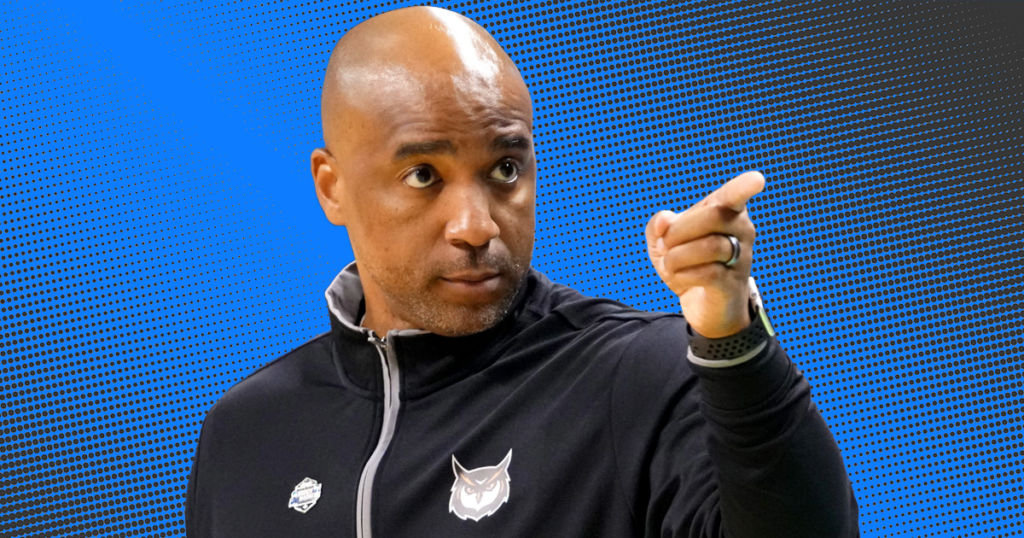
College sports role: Amir Abdur-Rahim is USF men’s basketball coach
“I think so [endorsing revenue sharing]. When we’re able to make the money we are making, but when they [athletes] are leaving they have this degree, which will help them over the course of their life. But the day they graduate from college and they no longer have room and board and eat for free, for them not to have something to give them that security, it’s a travesty. We’re really doing them a disservice, especially with the money they generate for the universities and our conferences. Say you took $50,000 and put it in a Roth IRA and let it grow, they are now graduating and leaving school and graduating with $125,000 for a little nest egg to start their lives with – that helps big time.”
Mike Aresco

College sports role: Mike Aresco is the American Athletic Conference Commissioner
“If you had to share revenue with student-athletes, I don’t know how many athletic programs could support that. You have to look and say, ‘What do you want college sports to be?’ Do you want it to be a semi-professional league, then fine. Pay players. Do this, do that. What’s next – employee status? Is it unionization?
“Employee status takes away a lot of discretion coaches have. It takes away a lot of the rights that student-athletes have now. If you’re an employee, you get fired, I assume. You pay taxes. You do some things you don’t have to do now. There are some protections for student-athletes. It works both ways. I think unionization is a [net negative] in college sports. At some point, you have to worry that fans will turn [against it]. If they don’t think it’s remotely college sports anymore – if it’s arguing over union deals – it might catch up to college sports.”
Charlie Baker
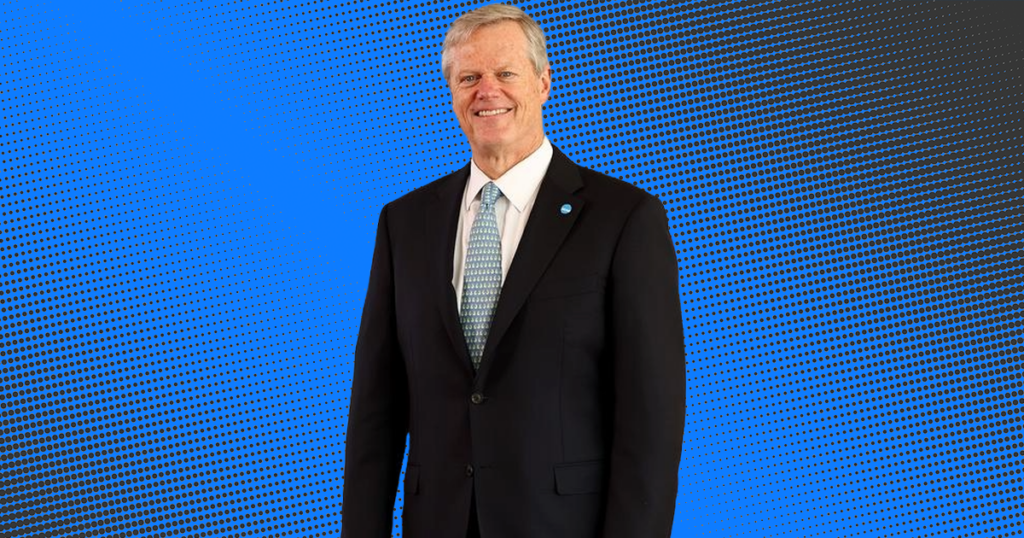
College sports role: Charlie Baker is the NCAA President and a former governor of Massachusetts
“The national student-athlete leadership groups are all opposed to turning college athletes into employees and I agree. Making all student-athletes a traditional employee would have tremendous negative consequences: student-athletes let go for a bad performance, or paying taxes on scholarships or room and board, and changing the relationship with teammates or coaches from the positive one enjoyed now to one where employees report to a supervisor.
“Several HBCUs recently called on Congress to act on this issue noting that if student-athletes were considered employees, they would have to stop sponsoring college sports because their budgets would not be able to support the costs. Those programs are likely just the tip of the iceberg.
“There is no question college sports has been slow to change. The NCAA is making real progress in delivering greater benefits to student-athletes and will continue to, but employment should not be one of those changes.”
Jason Belzer
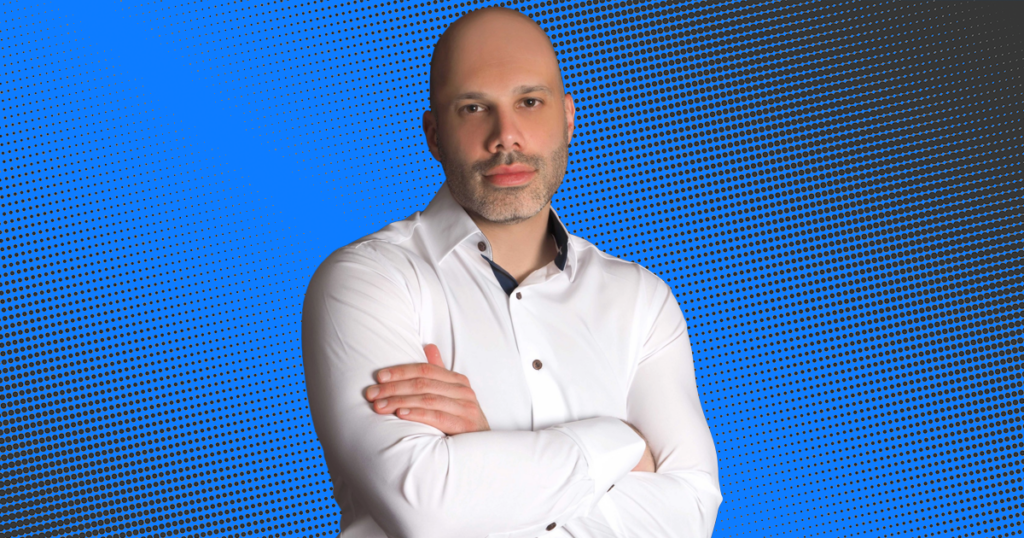
College sports role: Jason Belzer is the founder and CEO of Student-Athlete NIL, a company dedicated to helping brands, collectives, universities and student-athletes navigate NIL
“Well, if it’s a true employment model, and I think most people don’t recognize this, one is chaos, because employment is very hard to define. Every state has different rules, and everything else like that. But the thing that most people don’t recognize is that if there is an employment situation, and I’m not talking about revenue share, you can have revenue share without employment. Most college athletes are going to make minimum wage, because most schools are going to go to them and be like, ‘OK, you want to be an employee? That’s fine. Well, you know that $100,000 a year in scholarship and room and board – now that’s taxable. So, we’re going to give you two options. We’ll either give you that for free or sure, we’ll pay you $7.50 an hour.’
“Everybody thinks that all of a sudden student-athletes are going to make all of this money. If you’re a student-athlete, you don’t want employment. I’m saying this as an attorney who has been in this business for 15 years and understands this model, college athletes should not want to be employees. College athletes should want revenue share, but they should not want to be employees. Because when you go down that rabbit hole, you’re not in a good situation. And by the way, you can be fired. And I would much rather get a revenue-share model and sign a nice NIL deal and know that I have that money and not be like, ‘Oh, I didn’t play very well. I got cut from the team in the middle of the season.’”
Ross Bjork
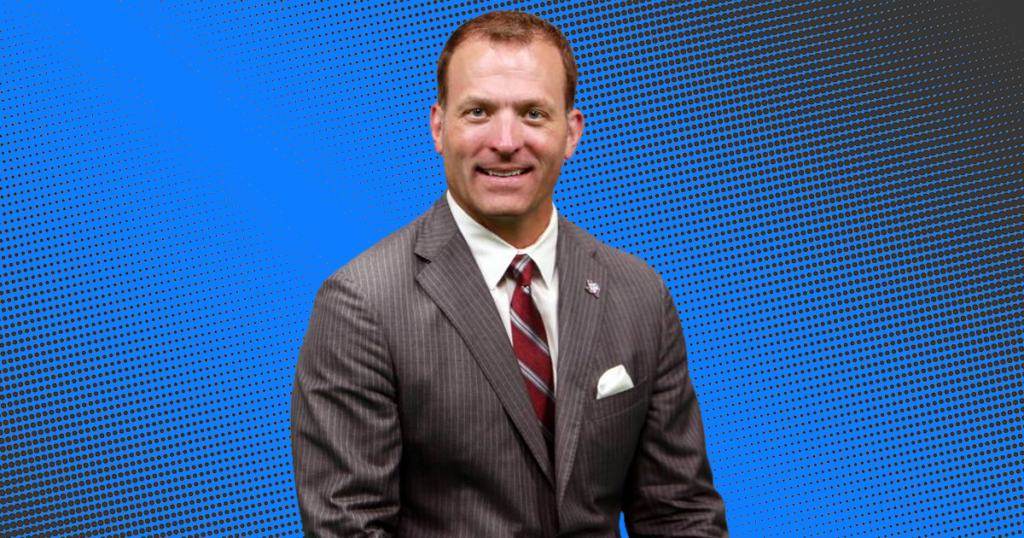
College sports role: Ross Bjork is Texas A&M’s athletic director
“No one can define what that means. When they say student-athletes should be employees, nobody has put a structure together to say, ‘Well, this is what that would mean, though.’ Is it as simple as you’re just treated like every student worker on campus? Here at Texas A&M, we employ 400 to 500 student workers at any given time. So do they have those employee status rights as a student worker? Do they have collective bargaining? Do they have minimum wages? No one can define what employment means. And then the flip side of that is, what does that mean for the employer? What kind of rights do I have towards the employee? And we’ve heard Congress, men and women talk about that. We’ve heard other ADs talk about that. So to me, until we define, what are we looking for? And what is best for the institution and the athlete? It’s hard to say, is it employee status? Is it independent contractor status? Is a student worker status? What about international student-athletes who are in a whole different category?
“So the employment piece, while it sounds easy on the front end, to throw that sort of nomenclature out there defining it is what needs to take place in terms of again, what’s the financial model between the athlete and the institution? And what does that look like?”
Jeremy Bloom
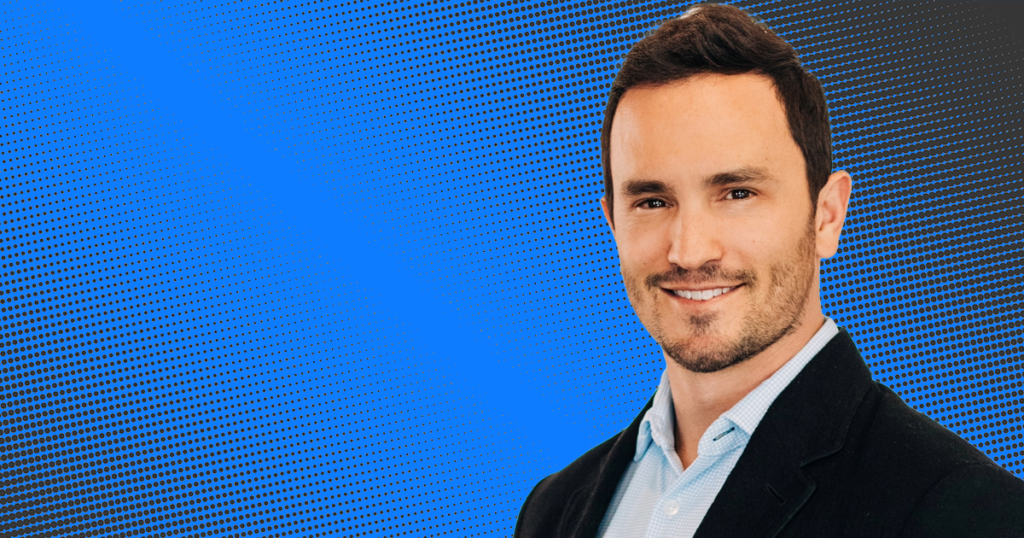
College sports role: Jeremy Bloom is a former freshman All-American receiver from Colorado who lost his final two seasons of eligibility because he participated in endorsement deals as an Olympic skier
“Yes, [they should be deemed employees] but exclusively for football players competing in Power Five conferences, as that’s where the primary revenue streams lie. Compensating players isn’t just advantageous for the athletes; it also offers significant benefits to universities. By establishing player contracts, schools can enhance their ability to retain talent, providing greater stability for athletic directors and coaches in roster management. Additionally, this compensation can include extended healthcare coverage, offering players vital protection against severe injuries in the long term. And hopefully, after Texas A&M paid Jimbo [Fisher] $70 million to leave, fewer people are saying ‘There just isn’t enough money.’”
Dan Butterly
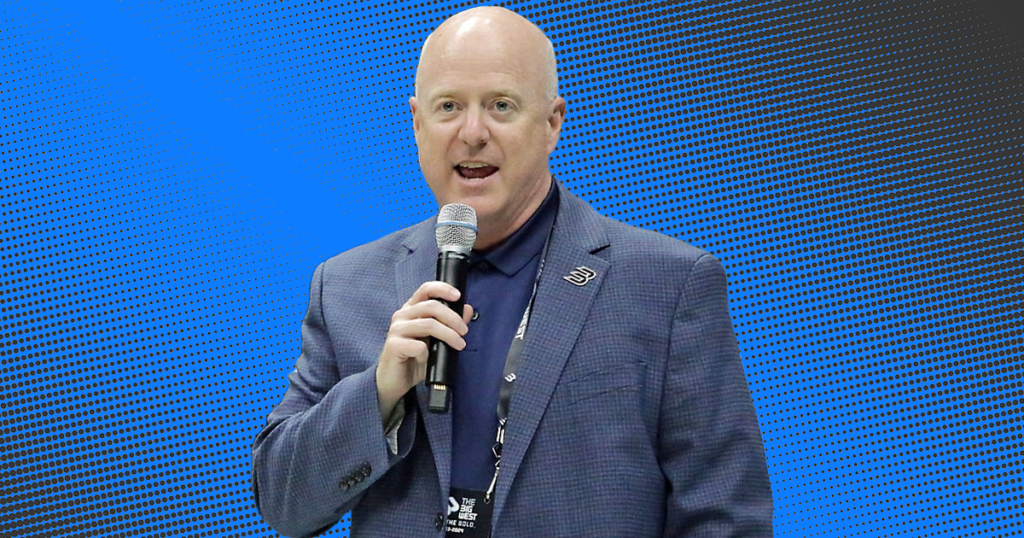
College sports role: Dan Butterly is the Big West Conference Commissioner
“The Big West is in a unique position in that our high-achieving academic institutions do not rely on athletics to serve as the ‘front porch’ or to drive enrollment. For instance, a provost at one of our universities recently told me that her university turned down well over 10,000 students with GPAs at or over 4.0. The Big West generates opportunities for students for life, not just the four to five years while they are on campus as student-athletes. For institutions like ours, I fear that if NCAA athletics moves to an employment model, you will see a number of institutions move from sponsoring varsity – DI, DII, or even DIII – athletics and instead move athletics to club or intramural sports so it can remain a part of the student experience without all of the issues that would arise if student-athletes become employees.”
Chuck Carson
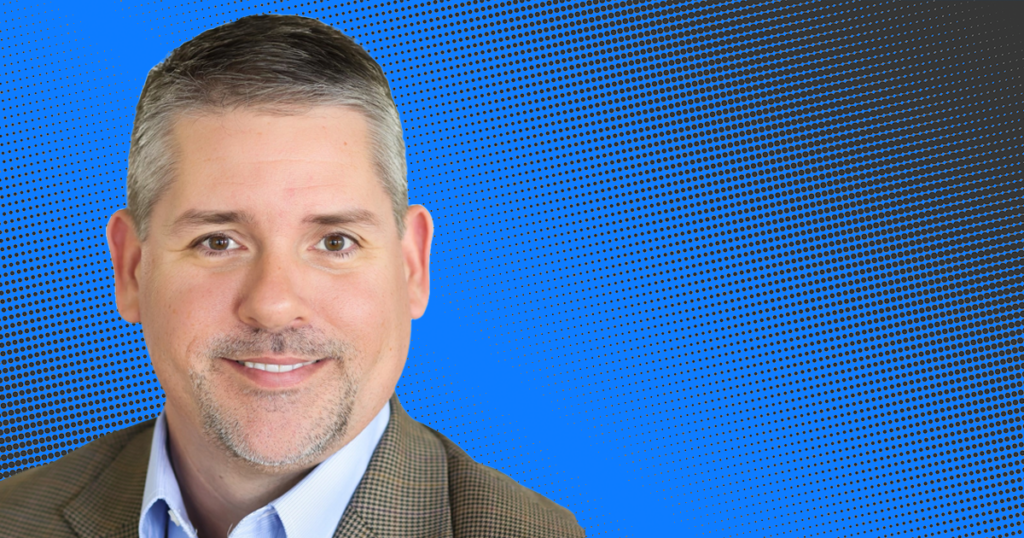
College sports role: Chuck Carson is the co-founder of Trojans Together Collective, a community-focused collective that supports athletes at Troy University
“When you dig under the hood of a college employment model, you get to a phrase called revenue sharing. And when you look at who actually has net revenue, that number of schools is incredibly small. Group of five schools, by and large, don’t have net revenue, at least not very often now. The College Football Playoff may open that up for a Group of Five school every year to go do something like that with the payout.
“But net revenue is not a thing for most programs. If you’re going to share revenue and institute that model, you’re really only going to have a certain number of institutions and their student-athletes who can participate because there won’t be revenue. I’m very curious about that model. I don’t mind the model. But you’re going to have to figure out a lot of legal stuff. You’re going to have to figure out what class of employees.
“Are they going to be treated as the same thing as a biology professor? And be afforded all the benefits? Is this a separate class of employee? Are you going to do retirement plans for student-athletes? What does that look like if they’re employees? And if you treat them the same way as a biology professor, then are you sharing the university’s revenue, and not just athletics revenue?
“It is one big hairy question – and it’s got so many layers to it. It is really hard to get to the bottom of.
“I think that’s why NIL is where it’s at. I think the idea of donors and sponsors using their money in a way that’s already familiar to athletic departments, and already for their universities, to fund athletics, I think that model has some merit to it. Because it’s very familiar, and the infrastructure is already there for it. But because of the world we live in, once you classify someone as an employee, there are rights that go with it, and you’ve got to figure out how those rights play out. And that’s the right thing to do.
“If we’re going to treat student-athletes as employees, we need to treat them as employees. We need to do the right thing for student-athletes all the time. Interesting world. And anybody who tells you they know what’s coming next, I’m going to give them the side-eye if they tell me they’ve got a crystal ball with this.”
Joe Castiglione
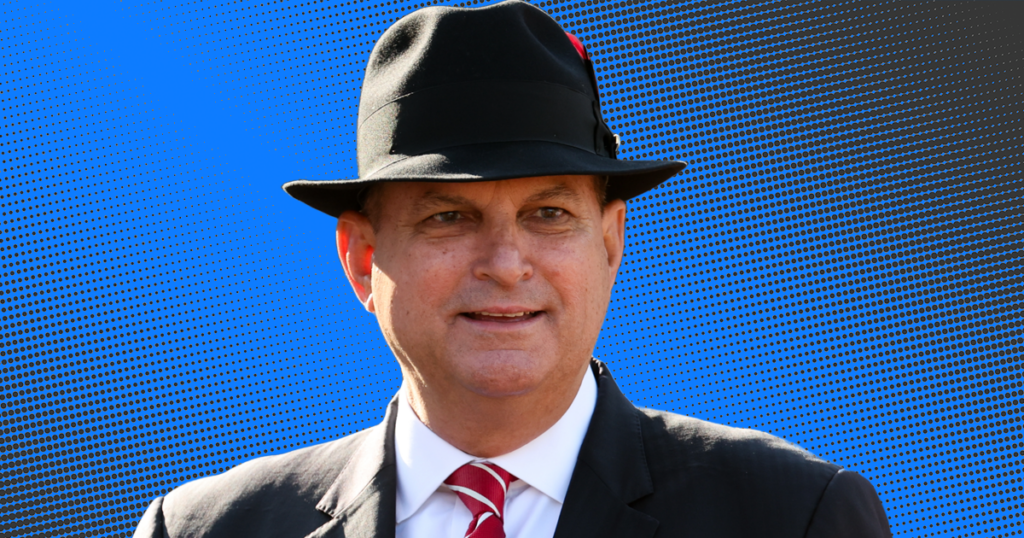
College sports role: Joe Castiglione is Oklahoma’s athletic director
“Our student-athletes are exactly that – students. And at Oklahoma, they are certainly students first. An employment model turns upside down the very definition of what a college student-athlete is versus a professional athlete. The conversation around their free-market earning opportunities has been given a higher priority than their college educations. Student-athletes make decisions about their education based on more than just the sport they play. Implying that student-athletes don’t care about their education is frankly insulting to them.
“And implying that colleges see them as commodities is a false narrative and the very antithesis of what I’ve lived my professional life working for. If we move to a professional relationship, are we then looking at a different way of decision-making between athletes and schools? Right now, we recruit. Professional leagues draft. Will we end up dictating where students go to school? Are we looking at salary caps? Will every student-athlete at every level pay taxes on their scholarships?”
Andrew Donovan
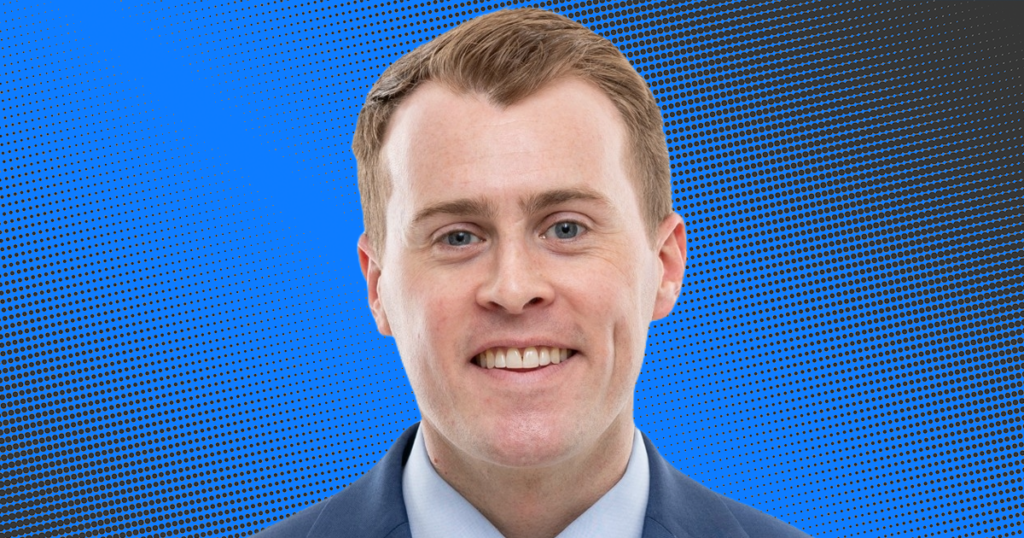
College sports role: Andrew Donovan is Executive Vice President of ASP College at Altius Sports Partners – a company that works with athletic departments to build customized NIL programs.
“An employment model would bring about a multitude of complexities and demand a new institutional approach to budgeting, staffing, organizational structure, athlete support services and many other issues.
“Institutions would be wise to proactively prepare for such a shift as athletes’ rights and benefits will only continue to expand. Some form of revenue sharing, collective bargaining, employment, or quasi-employment is inevitable.”
Alex Glover
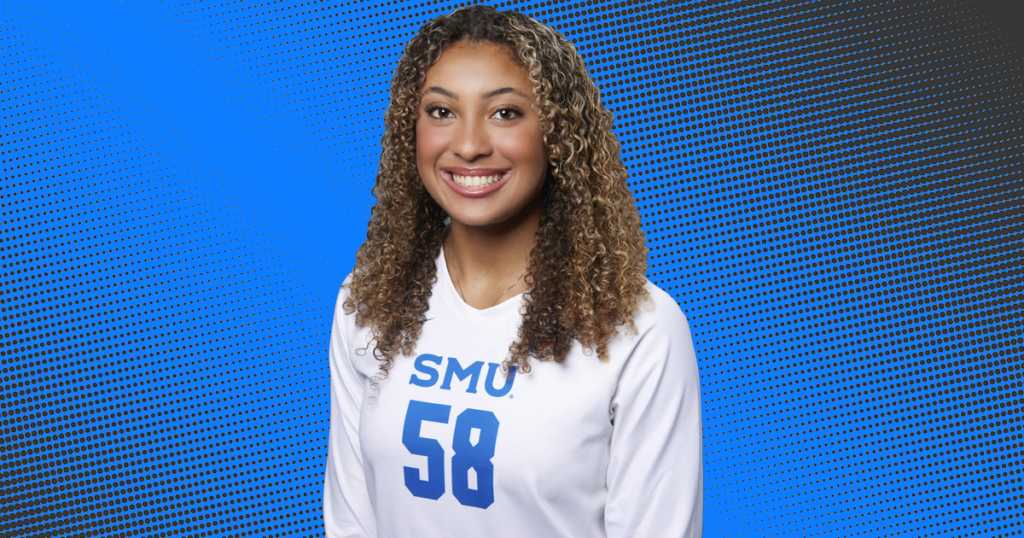
College sports role: Alex Glover is an All-AAC volleyball player at SMU with more than 40 NIL deals and intern experience at CBS Sports
“I do not feel athletes should be university employees. I believe that scholarships, stipends along with the opportunity to monetize your name, image and likeness are all good examples of ‘payment’ for the student-athlete while representing the said university.”
Beth Goetz
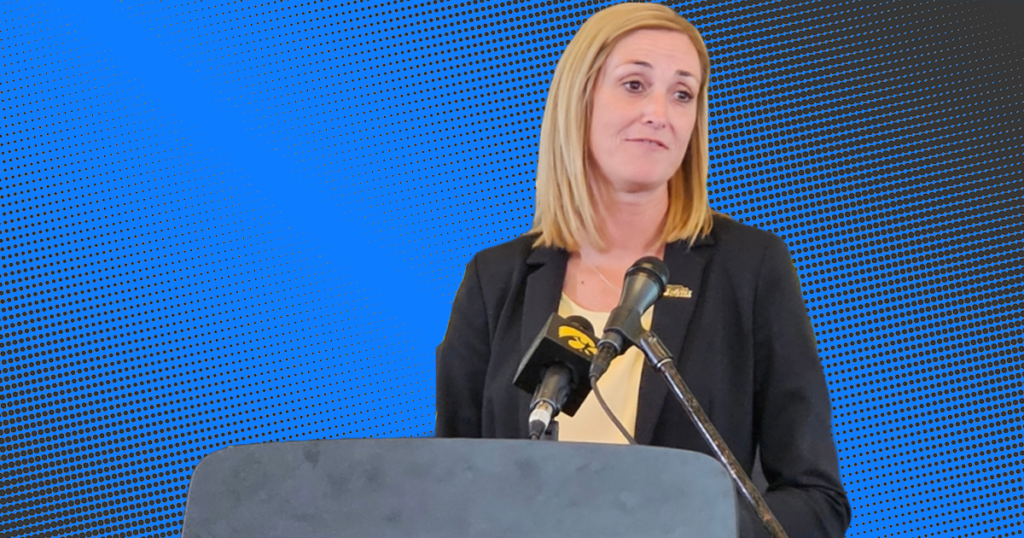
College sports role: Beth Goetz is Iowa’s interim athletic director
“All of us continue to follow the national landscape. It is important that we explore ways in which we continue to provide resources to all our student-athletes. What form that is, I think, will be dependent on the results of a handful of things, whether that’s lawsuits or federal government intervention. But we want to be a great service to our student-athletes and how we continue to provide them resources is something we have to continue to deal with and be supportive of, ensuring that we get them what they need.”
Dan Greene
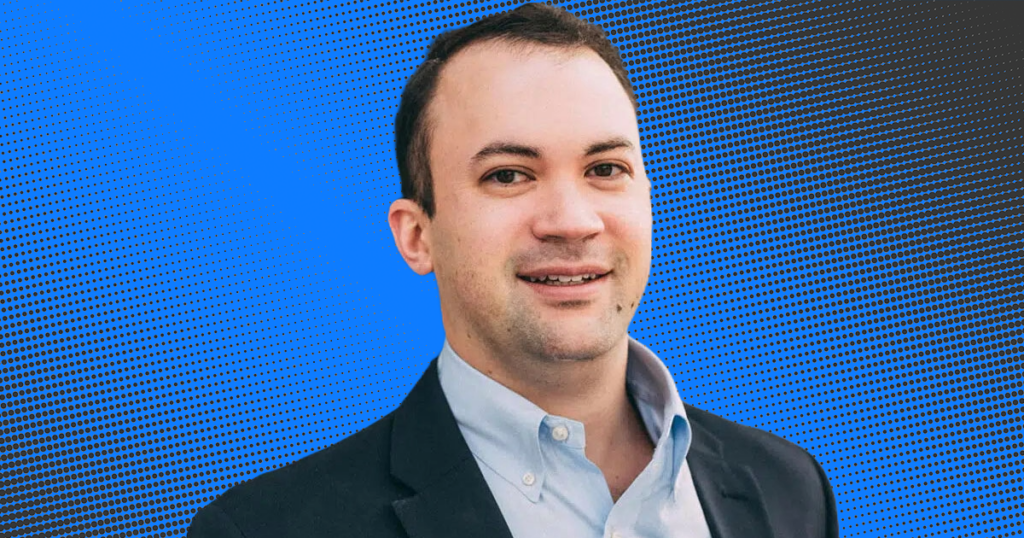
College sports role: Dan Greene is an NIL expert and associate attorney at Newman & Lickstein
“A revenue-sharing or employee model would essentially exterminate the current college athletics model – which is a good thing. The time has come to acknowledge that the business of college athletics has been built on the backs of athletes who have received no compensation for their work. While becoming an employee of their institution may bring some drawbacks for college athletes, it will overall bring power to the athlete group allowing them to have a say in how they are treated. The big question will be if all or only a certain class of college athletes are entitled to revenue sharing or the designation as employees. I believe whatever is decided here will dictate whether the NCAA exists or not in some fashion moving forward.”
Steve Hank
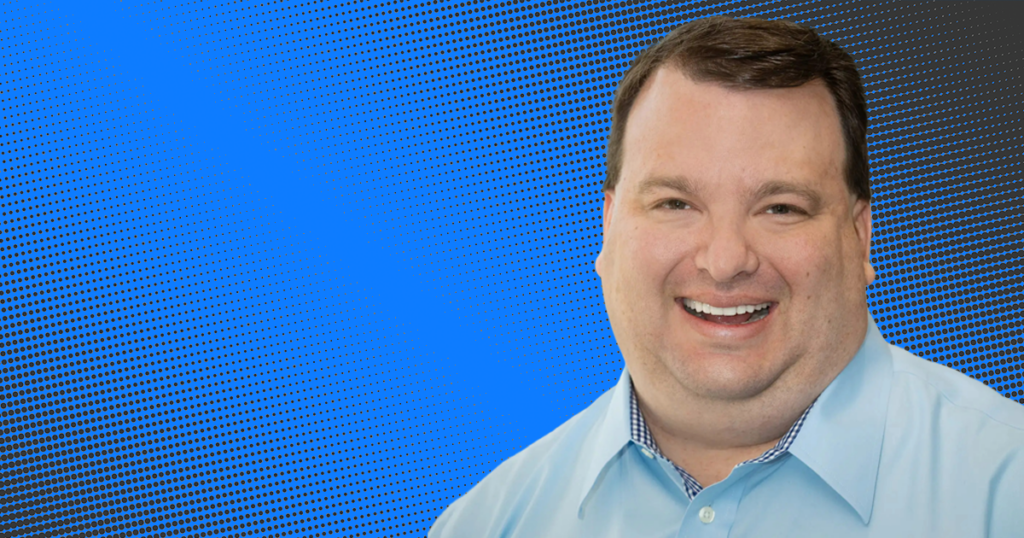
College sports role: Steve Hank is Executive Vice President of Collegiate Athletics at Affinaquest, a leading data management company in college sports
“Think it really would have the greatest impact that nobody’s talking about on Olympic sports. Anthony Robles was a national championship wrestler at Arizona State with one leg. I worked at Arizona State when Anthony was there. The inspiration and what people learned, that is the true essence of collegiate athletics. I think that is getting lost.
“That is the essence, that is what’s really going to be harmed by the constant focus and I hear all these people saying, ‘Do you think that student-athletes should be paid?’ Yes, I do. But we also have to make sure that we do provide resources for other sports. There are a lot of unintended consequences. And I don’t think people are looking at the big picture, but I also do think, under the law as it’s currently out there, it’s inevitable – if there is not a shift and a change in Congress where they carve it out.”
Penny Hardaway
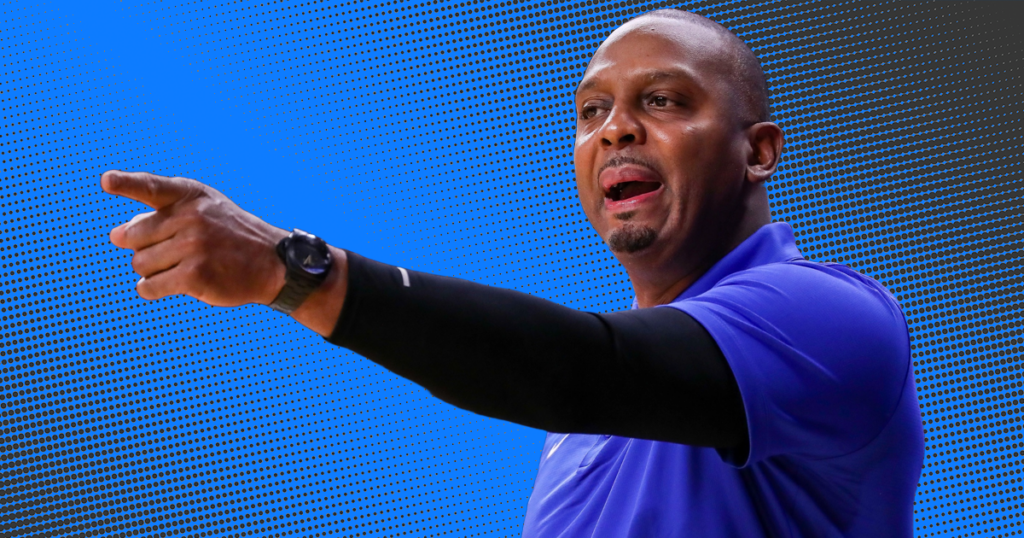
College sports role: Penny Hardaway is Memphis men’s basketball coach and a former NBA and college basketball star
“Man, that would be great [revenue sharing] because it would take it off the donors’ back. But everybody doesn’t have a TV deal. I’m for that, for sure. It makes it easier for the AD and the president to try to raise money. It’s already there.”
Steven Hatchell
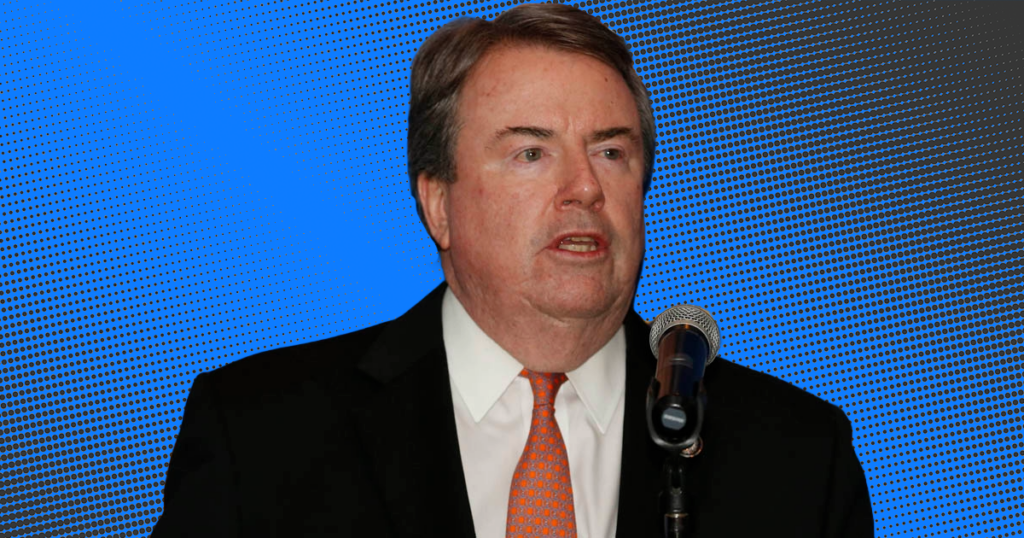
College sports role: Steven Hatchell is the National Football Foundation President and a former Big 12 Conference Commissioner
“I don’t really care for that because what people talk about and what they fail to talk about is what it means to be an employee. You miss a field goal, do you get fired? I think there are so many things that go unanswered and unaddressed when people say, ‘Well, let’s just make them employees.’ This is why getting back to a group like the college football association, getting back to a group and saying, ‘OK, what are the benefits that you get from being an employee?’ And I still come back to where the bedrock of all of this is, you do this because you want people to get a degree.”
Darren Heitner
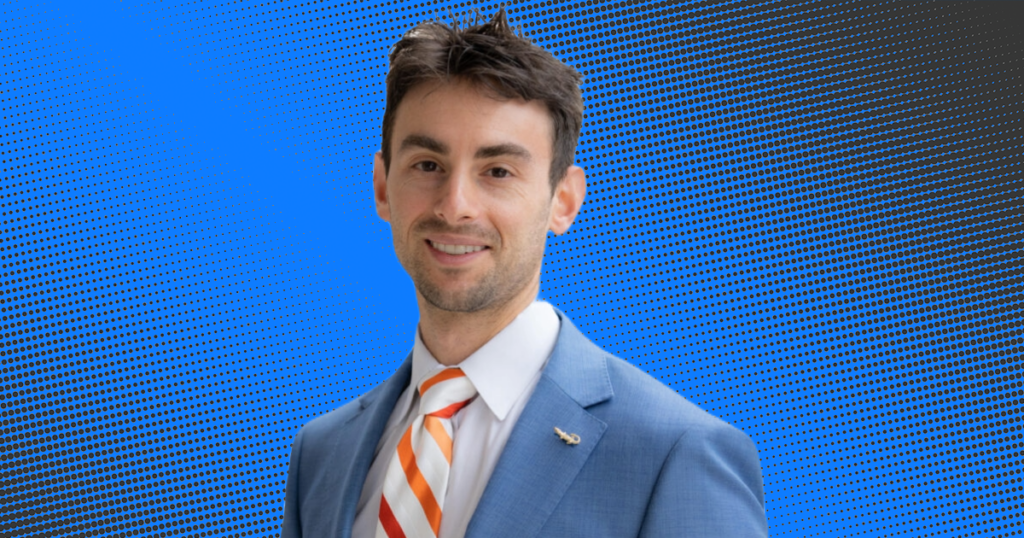
College sports role: Darren Heitner is one of the top lawyers in the NIL space
“The question itself is broad and vague. We don’t know if and when there is an employment model, or what the scope will be. From many who understand the space, employment doesn’t necessarily make sense for all 400,000 plus college athletes. Does it make sense for football players? Probably, at least at the Division I level. Does it make sense for men’s basketball players? Probably, at least at the D-I level. Women’s basketball players, I’m not sure. And then when we get into volleyball, lacrosse, baseball, etc. – probably not.
“Really, where it should start, is creating a distinction between college football players and the NCAA. You start with ensuring that every single college football player is earning at a minimum, minimum wage and also overtime payments to the extent that they’re working hours in excess of the statutory maximum. From there, for the more worthy blue-chip players, you allow a system where the parties can freely negotiate the terms of employment. And the Tim Tebows of the world, the Trevor Lawrences of the world, the Bryce Youngs of the world will obviously be able to command more dollars than their counterparts. That’s America.”
Michael Hsu
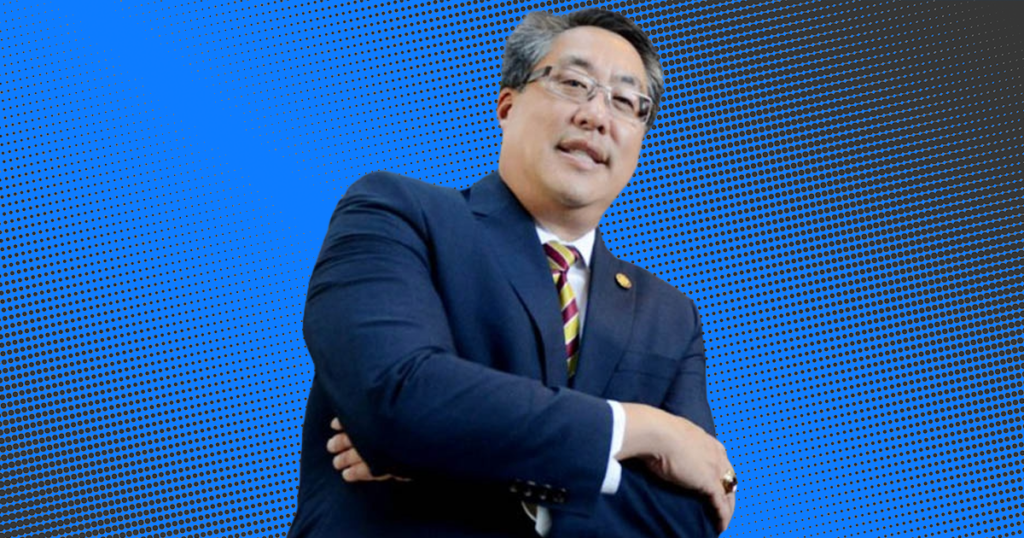
College sports role: Michael Hsu is co-founder of the College Basketball Players Association
“My view is all 500,000 athletes should be considered employees. There’s a voluntary approach, which means that the NCAA can actually control how this plays out, or any conference, like the Big Ten, they can decide how this gets played out …
“I think most people agree that the Power Five, at least in men’s basketball and football, that these guys are employees. I think the NCAA could have the same role that it has now with Division II and Division III, if, for example, the NLRB decides it’s just Division I athletes we’re talking about.”
Sean Hughes
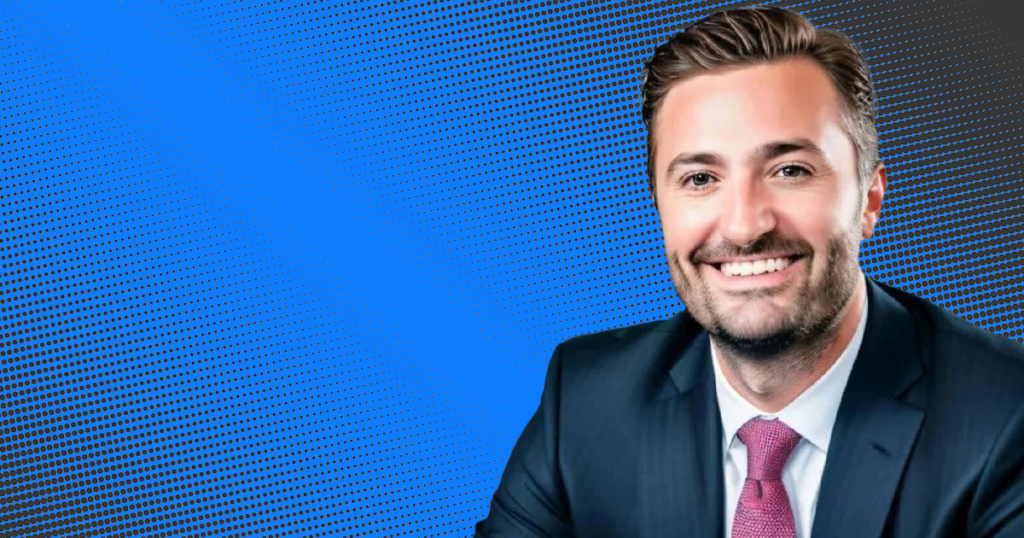
College sports role: Sean Hughes is co-founder and CEO of Athliance, a top NIL compliance solution
“An employment model is a seismic shift. On one hand, it offers athletes clear rights and benefits, but it also threatens the core amateur ethos of college sports. Such a model could increase institutional costs, possibly endangering non-revenue sports and Title IX as a whole. We must tread carefully, considering not just the rights of athletes, but the long-term sustainability and essence of college athletics.
“I haven’t seen an employment model where Olympic sports and women’s sports aren’t jeopardized. Schools can’t afford to pay football and basketball players salaries, while also maintaining all the other non-revenue-generating sports. If I can see a model where that works, I’d be all for it. But I just don’t see it. There are other benefits outside of just getting a paycheck as an employee that they’re working on now, such as better long-term insurance, and mental health care and things like that. So there are benefits that are similar to an employment model that the athletes are starting to get more of now, which is very encouraging.”
Walker Jones
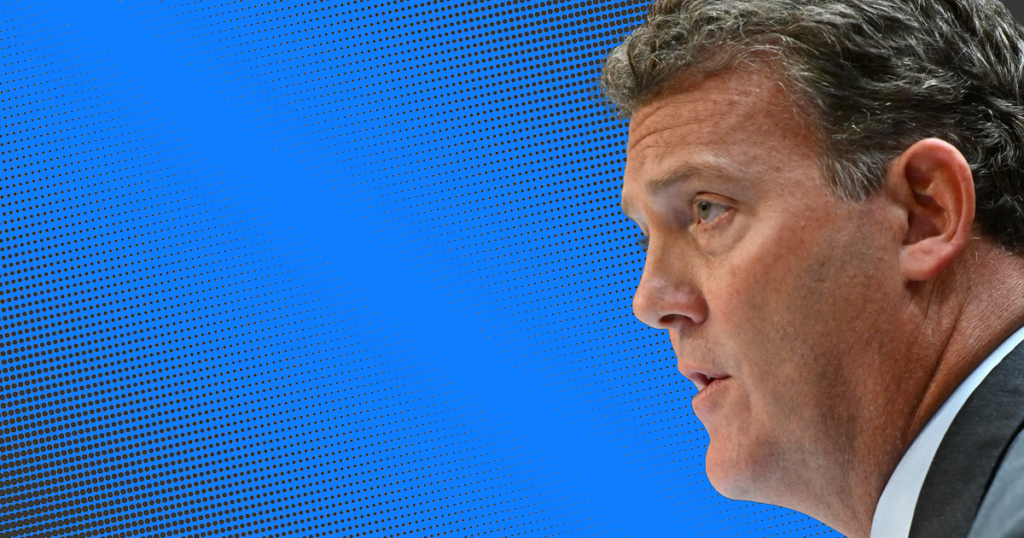
College sports role: Walker Jones is Executive Director of the Ole Miss-focused Grove Collective and a leader in The Collective Association who has testified in front of Congress.
“At a superficial, high-level viewpoint, there could be some serious dominoes that would affect the most marginalized student-athletes right now – your non-revenue and your female sports. If you look at who are the ones that are undervalued and marginalized, it’s those non-revenue Olympic sports and the female sports, female athletes. So as we have said, once you start bringing in rev share, unionization, collective bargaining – really, unionization is a big part of the employment model – the result is, we [hypothetically] are not going to have 18 sports, we’re going to have 10. And we’re going to have to go to a club model for our male non-revenue Olympic sports – cross country, track and field, lacrosse, soccer.
“Those are going to have to be a club sport type model, because we’re not going to be able to fund those when you start slicing this thing, and you bring in unionization and you bring in collective bargaining, which comes with employment. That’s where you have to be really careful with the degenerative effect that employment can have. And I go back to [Notre Dame Athletic Director] Jack Swarbrick‘s comments when he and I were talking.
[Swarbrick opposes an employment model but endorses athletes receiving a special exempt status to enable them to engage in collective bargaining.]
“Again, anecdotally, our athletes [want] their fair share, but not at the sacrifice of not being a student-athlete anymore. How do we get there? I think there’s almost going to be that special exempt status that we codify these athletes as. But if it were easy, we’d already be there. It is a very nuanced argument.
“That train keeps rolling. And there are so many things right now that look, act and feel like employees and an employer. If it looks like a duck, and it talks like a duck, it’s probably a duck. So we probably have to warm up to what that is and try to figure out how we preserve these opportunities for these marginalized athletes that would be affected when you start talking about unionization of college sports.”
Bill Jula
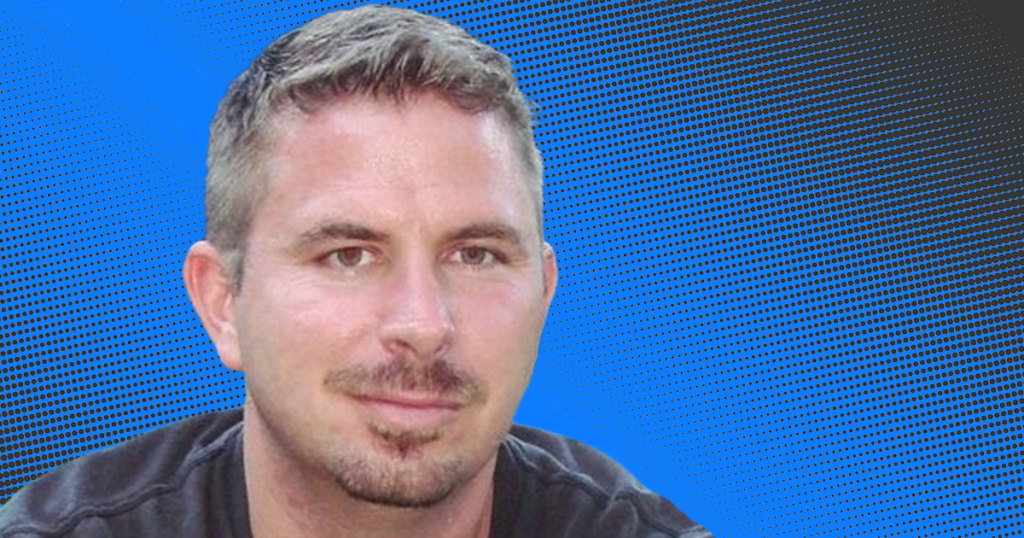
College sports role: Bill Jula is the CEO and co-founder of Postgame, an agency that manages some of the top NIL campaigns in college sports
“I’m a firm believer that employment is not going to happen, at least not anytime soon. If and when it does, many athletic programs will struggle financially to make it work and some will potentially cease to exist.
“This will be to the detriment of thousands of student-athletes who will no longer have the opportunity to participate in nonrevenue sports. Many football programs will struggle financially as well. The move toward employment could actually backfire and decrease the number of student-athletes benefiting from college sports.”
Dan Lust
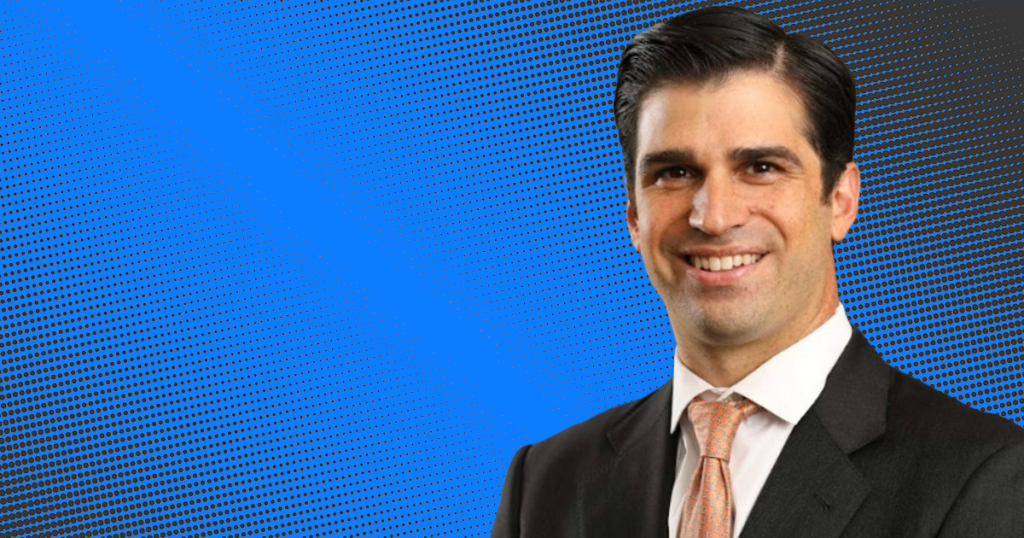
College sports role: Dan Lust is a sports attorney at Moritt Hock & Hamroff LLP and sports law professor at New York Law School
“I think the employment model would seemingly provide some type of minimum payment for college athletes, which doesn’t exist. So athletes are incentivized to be entrepreneurs and really go out of their way to find and secure these NIL deals, for the minimum payment, given the amount of money that we know that’s involved with college sports, that might fundamentally shift the space. I think that is an interesting one, because then if you’re a college football player and you’re sitting at the end of the bench it’s not that much you have to do.
“But then that goes the same for those non-revenue generating sports. If you’re deemed to be an employee in a non-revenue-generating sport and the school wants to pay you some money, then the school has to make some really tough decisions. They have to operate similar to how a business would. That’s when I get concerned or I get curious as to how the schools will actually adapt to that. If it’s not financially feasible, will the schools have as many sports as they currently do? I think that’s anyone’s guess.”
Heather Lyke
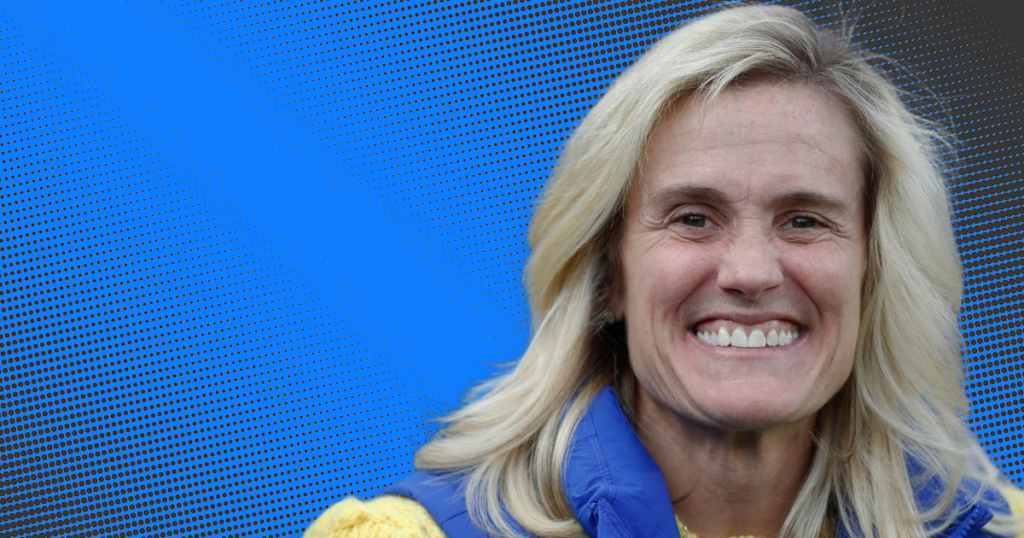
College sports role: Heather Lyke is Pittsburgh’s athletic director and an ACC representative on the NCAA Division I Council
“An employee model is really the thing we want to avoid. I just think it’s detrimental to college athletics. If I look at the spectrum of sports, from peewee Little League to the pros, where you have employment and collective bargaining and true employment status, college athletics right now is in this crazy spot of being the only organized sports that can’t organize and create rules without being attacked from antitrust lawyers – and losing.
“I see our kids wearing backpacks, sitting in study table. Like, they are not employees. They are not. It would change the whole model. And they’re not professionals. They’re just not in any sense. They’re not ready to be professionals. Very, very few of them, right? Protecting their status as students, the 95% majority of them are truly students, going to school, getting an education and playing big-time sports. You’re Caitlin Clark. She is still a student, right? She’s still getting her degree. Protecting them from that employee status is really, really paramount because it really changes the whole dynamic.
“I was talking to a couple of our athletes at a basketball game. I was like, ‘Okay, what if we made you an employee?’ They were like, ‘Oh, that would be awful. Then I’d be like an adult. I wouldn’t be a student.’ … We did a horrible job in college athletics of managing our message, staying focused on the student-athlete and making sure it was tied to education. And people just saw massive facilities going up. We became this quote-unquote commercial entity, as opposed to something tied to education. I don’t know if you can undo it. But if you talk to student-athletes, they don’t want to be employees either.”
Ksenia Maiorova
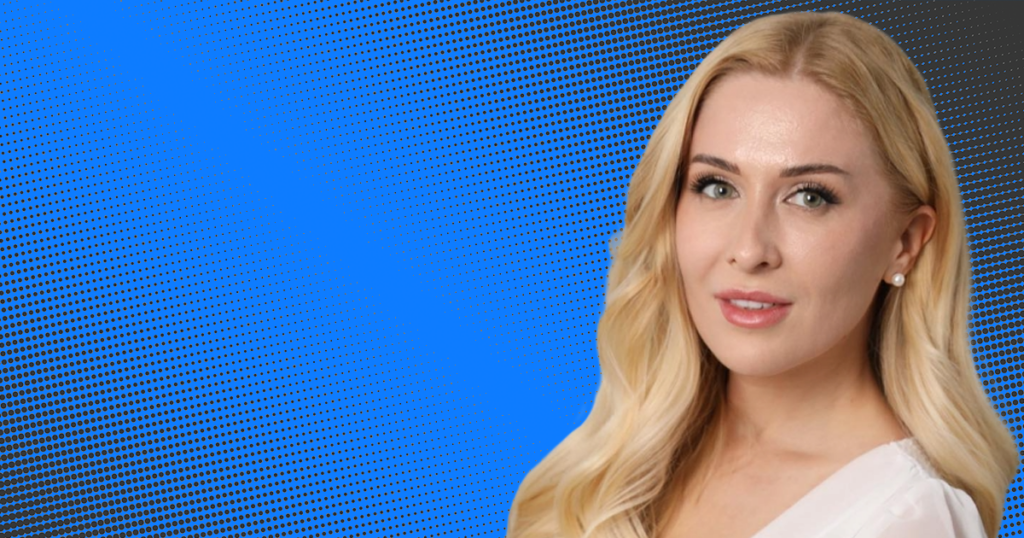
College sports role: Ksenia Maiorova is an Immigration attorney who co-authored a book titled NIL X Immigration
“If these efforts by Dartmouth [men’s basketball players] or some other organizations are successful, we will have, potentially, a situation where, if student-athletes are designated employees, then overnight we could have any number of international student-athletes that are immediately in violation of their status.
“We’ve got 20,000-plus international student-athletes in the NCAA. If they’re all deemed employees then they are in violation of their student status immediately, with no recourse because they can’t be employees. I think this development will push it to a head where DHS [Department of Homeland Security] can no longer ignore it. They’ll have no choice but to take their heads out of the sand and actually consider how we change this.
“I don’t think that I’ve had a conversation with an institution that has considered the implications of the employee model from an immigration perspective. To the extent that I’ve brought it up to various stakeholders, that’s just been kind of a novel concept for them, they just go, ‘Oh, well, we haven’t thought about that.’ I don’t get the sense that a lot of institutions are aware of the immigration implications of this.”
Tom McMillen

College sports role: Tom McMillen is a former U.S. Congressman and current CEO of LEAD1 Association, which represents the athletics directors of the 133 member universities of the Football Bowl Subdivision
“If the court in Pennsylvania decided student-athletes are employees, I’m sure that affects all student-athletes. And, obviously, one of the consequences is there would be sports cuts, probably male sports cuts is more likely than anything. Having sat on the board of universities a few times, university presidents don’t want to see unionization of any of their employees. You’ll probably see collective bargaining, they’d attempt that. It’s not going to be easy. These are really like gig workers. They come in and they are gone. The idea of collective bargaining in, putting that together is not an easy step.
“I do think some of the Democrats are going to push effective employment standards on college sports. Well, if you’re not going to be a union, you’re going to have effective rights of the employees. Historically, football has paid for a lot of sports. I think that that model would be eroded under an employee model. Basically, you would not be able to underwrite as much as it has. Title IX would be very complicated. If you’re going to give $1 million to male athletes, I think you have to give $1 million to female athletes. Title IX might be more of a divisive force on campuses than it has been. Then the question is how employment is rolled out. Do you bargain? Are players treated the same, differently?”
Jacqie McWilliams Parker
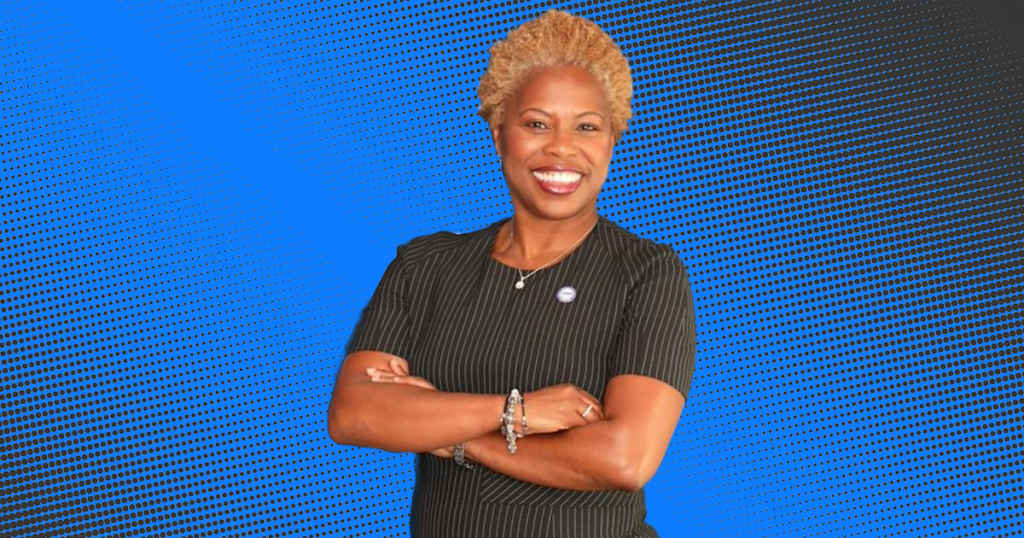
College sports role: Jacqie McWilliams Parker is the Commissioner of the Central Intercollegiate Athletic Association, which mostly consists of historically black colleges and universities
“When I think about our historically black colleges and universities, I think about would we even be able to stand and provide college athletics for our student-athletes if we had to pay them? We’re already underfunded. And that’s just historically black colleges and universities. Our Division II schools, they don’t give scholarships, but there’s funding that’s needed to support their participation. In some of our smaller conferences, and outside of the Power Five, it’s the same vein. It would be challenging.
“And then, how do you think about the pay scale? Who gets paid what – benefits and salaries, insurance? So you have to worry about that component outside of all the other pieces of managing a sports team. I’m not for it – have never been for it. But I understand the optics of what the public sees, the revenue that comes into some of our schools. Not all of us are receiving that type of revenue. Maybe there needs to be a conversation around those schools that have maybe the revenue to do it, but I’m not sure they do because of the things that we provide our student-athletes. I don’t think we would be able to provide, or maybe even stay in the NCAA, if we had to pay our student-athletes and then all the other things that we are currently trying to do to have athletic programs, which is still underfunded at a lot or our most of our institutions.”
Betsy Mitchell
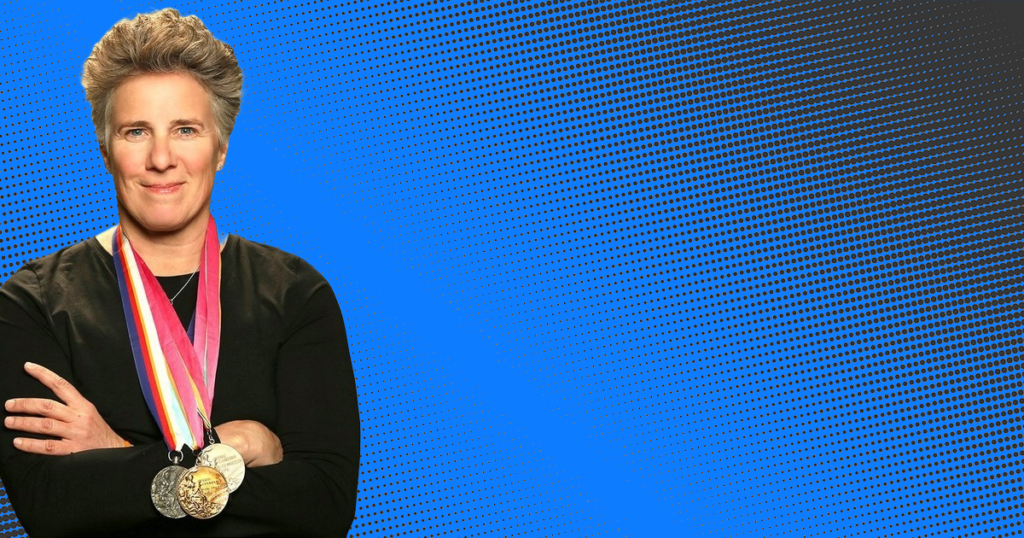
College sports role: Betsy Mitchell is Cal-Tech’s athletic director and a former world-record holder and world champion swimmer and rower
“The only way that we continue to have sports [at Cal Tech’s Division III level] is if we are exempted when those rulings come down – and that they see the differentiation is still at play. Our kids are not employees. It’s about control. And when I say that, we don’t have control over our kids [at Cal Tech]. They are students and young people that do what they want. We don’t have anything over them. They play because they want to.
“I was a Division I athlete and I played because I wanted to, but that was 40 years ago and a whole different deal. The latest is that it will come down to issues of control. The only way forward for D3 is to differentiate ourselves and say, ‘No, we’re still doing it the way it was drawn up. You’ve got to exclude us.’ Because it won’t happen. What will happen is we won’t have sports. We won’t have sports. It will all go away. Run the math on it. I’m at a private school. But do you think public schools are going to do that? No way.”
Gloria Nevarez
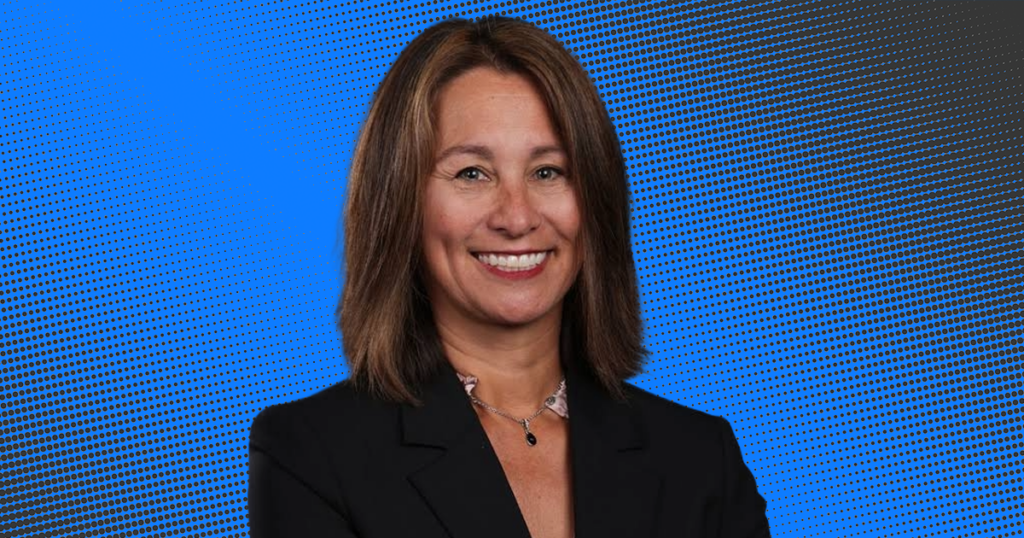
College sports role: Gloria Nevarez is the Mountain West Conference Commissioner
“I’m opposed to an employee model because really the reason I’m in this business is I believe in the mission of educating young people in the academy and through sport, and I just really appreciate the U.S. model in that sense.
“I believe in that mission. And I feel like an employee model actually reduces protections for student-athletes. If you don’t play well, you could get fired. If you have a moment where you make some bad decisions in our current model there are some warnings, and some suspensions, but by and large you get second and third chances. Whereas in an employee model, you’re subject to almost strict liability and you could get fired. I do like the fact that our current system balances and puts a premium and an expectation on academic eligibility and graduating. That’s an important piece that may go away with an employee model.
“I think folks are leaning into the employee model because of the collective bargaining ability. I hope and wonder if we could get that type of student-athlete voice in the governance structure, which I think we’re working toward and have made great strides on in the last year or so – so that they do have a voice in the model. But I would not be in favor of going to full employment/collective bargaining and all the things that come along with employment. I haven’t really made up my mind yet where I am on the revenue sharing piece, because one of the things in the debate that gets missed is the value of services. And in some places they’re more robust than others. But they’re very important to the mission of educating young people in the academy through sport.”
Tori Ortiz
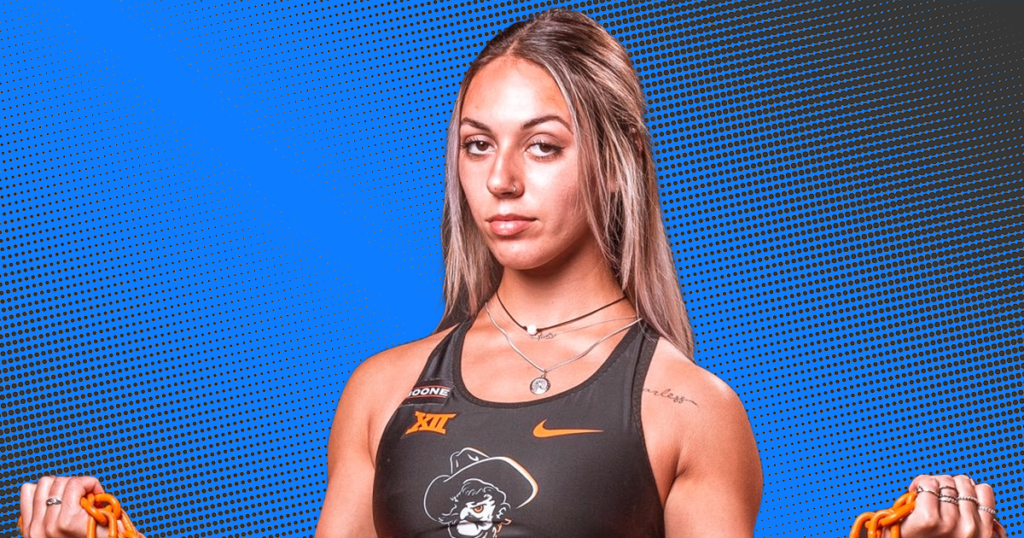
College sports role: Tori Ortiz is a former Oklahoma State track athlete who finished her career with the highest On3 NIL Valuation in the sport
“I believe athletes should be ‘university employees.’ Athletic programs bring in so much money to the university, and NIL deals aren’t promised to everyone. If you are an employee, then they’d have to get paid, and even something as small as a stipend to the players who don’t get much love could go a long way. I just don’t think universities truly want to spend that much money. At the end of the day, doing something like that is only going to benefit people. You never know someone’s story or what a person is going through. Extra money can always help.”
David Ridpath
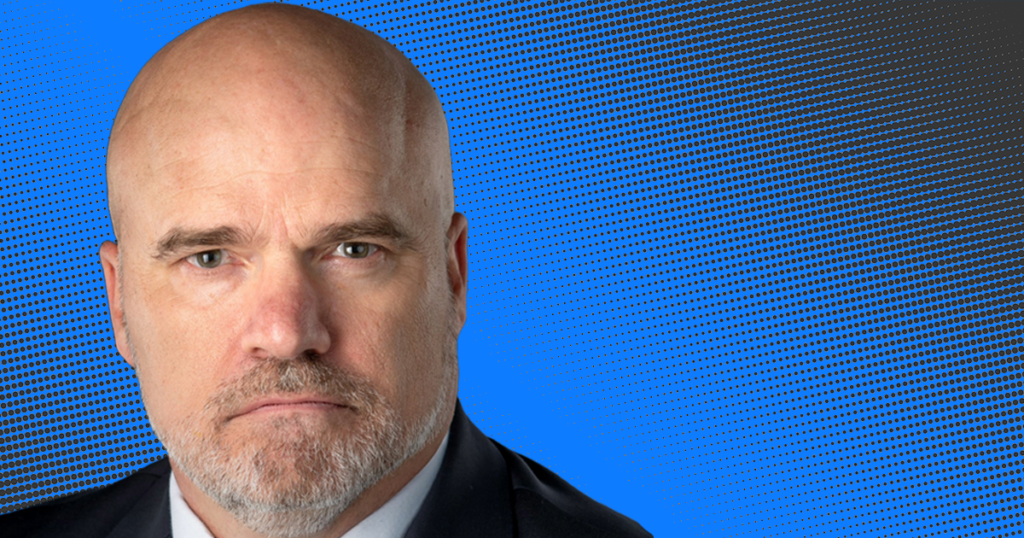
College sports role: David Ridpath is a professor of sports business at Ohio University who has appeared before numerous Congressional committees regarding college athletics
“Probably [wouldn’t affect college sports] as much as people think. The games will always go on – so it is not an issue of the sports being less popular if players are paid employees. That myth has been destroyed. The next step is how it works – and there are many possibilities. First, anything, as a start, has to be a direct negotiation with college athletes having a bargaining seat at the table to eliminate any antitrust issues. Giving men and women an equal seat at table with access can mitigate Title IX issues – it is important to note that many schools are far from gender compliant now and any argument that paying college athletes will destroy women’s sports is a scare tactic – and can also help produce a viable compensation model.
“Could it be similar to work study with an hourly wage? Straight salary and benefits based on skill and marketability? Straight stipends? I do know that it can be figured out. NILs – while choppy – have largely worked and no one was really proactive in producing workable models before it happened. I do think we overcomplicate it. I also believe it does not have to weaken any other sports, as simple market corrections can balance that impact, but I do fear leadership is not capable of making those decisions. If this happens, I think other systems will manifest outside of the education system for those sports.
“Schools can privatize – like dining services – its athletic department and charge it a hefty tax for use of facilities and overhead and that money can underwrite other sports. It is actually similar to how it is working now for many departments. We are not solving Middle East peace here. It is not that complicated. We have many smart people that can figure this out and all educational opportunities can still be available. Many tell me if college athletes get paid, they should lose their scholarships. However, they rarely acknowledge that employees of most higher ed institutions receive educational benefits, some completely free tuition and other benefits.”
Greg Sankey
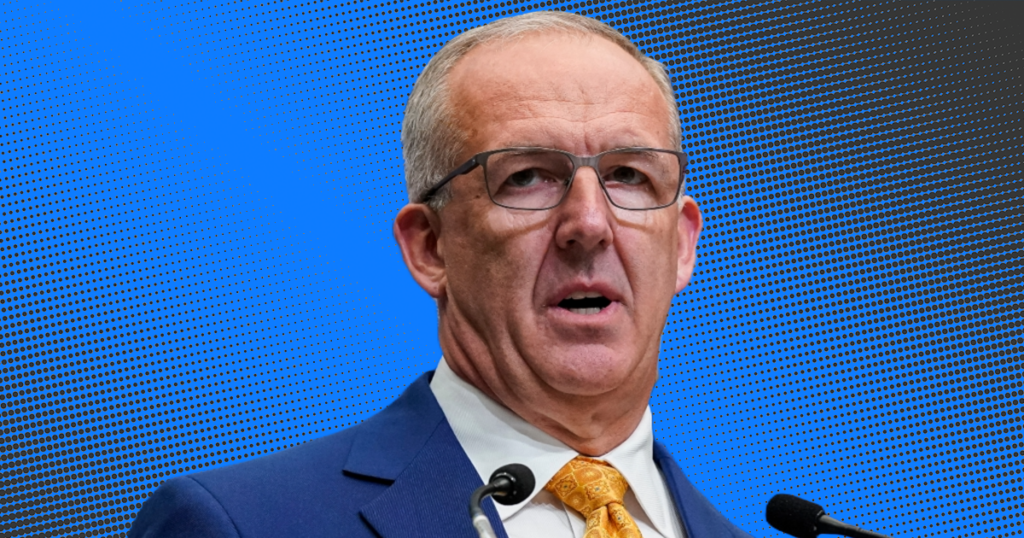
College sports role: Greg Sankey is the SEC Commissioner
“There’s this set of venues that have been asked to make that decision, whether student-athletes are or are not employees, and there’s plenty of history that has not deemed them to be employees and that need not be forgotten. So I don’t just automatically go to the conclusion, or to a particular outcome. That’s being argued. That’s not new, those arguments aren’t new. It’s just never been a finding in the past. So I think you have to take a step back and you look at some of the activities that involve filings in the Johnson case, originating with non-scholarship student-athletes, or those in partial scholarship sports. You have the Dartmouth situation and some in the Ivy League where they’re not being [provided] scholarships. And I think that speaks to the questions, not about the high-level competitive conferences or highly financed conferences. The question relates to every young person participating in a college athletic program at every level. That’s the way it’s being framed.
“Speaking to friends who are Division III athletic directors, I’ve had several say, ‘We wouldn’t exist.’ And I go back to, ‘Your Division III program wouldn’t exist for athletics?’ and they go, ‘No, no, our university, our college wouldn’t exist because of the enrollment model.’ Some of that is true in Division I. Division II as well. Are those taxation issues for student-athletes across the spectrum of benefits? Right now, we’ve added and added and added support structures that largely don’t exist the same way in professional sports. We do that to support young people, but those become taxable events repeatedly. Does that really put them in a better position? So there are complexities here that aren’t necessarily apparent. It would have an impact, obviously, from a financial standpoint on programs. But, again, that’s the full spectrum of programs. There’d also be a financial impact – not all positive – among the participants. These things will have to be debated and decided, again, in these various venues.”
Julie Sommer
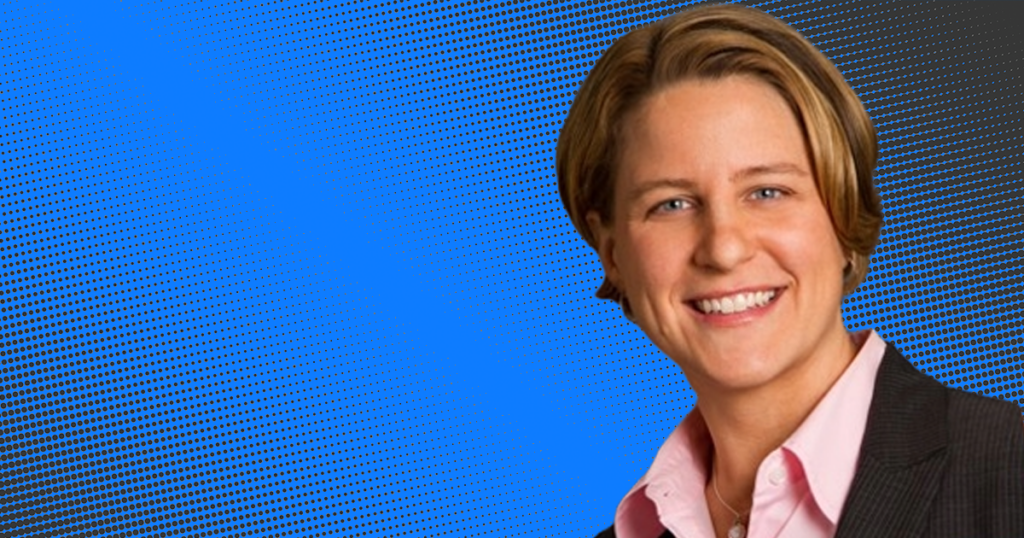
College sports role: Julie Sommer is the Executive Director of The Drake Group Education Fund, whose mission is to ensure that the promise of college athletics is realized for all stakeholders
“While I would love to see a world where every athlete is fairly compensated for their efforts – including health care as well as other benefits and protections – the current funding models within most universities and in college sports as a whole make it nearly impossible. This includes increased reliance on external funding or quasi-external funding models, such as collectives.
“Most athletic programs run at a deficit. Many are functionally bankrupt. Collectives are in many places pulling donor support out of already struggling programs. Schools are upside down on stadium and facilities improvements.
“Obviously, there are a variety of ways to compensate athletes – from simple revenue-sharing formulas to actual employment status. The laws surrounding employment, taxation, wages, and other factors are different in every state, making a national model challenging – especially without drastic changes to the way college sports are funded, or in many cases not funded.
“It’s not as simple as taking the value of a cable deal and dividing a percentage across a team, program, or department. The incentives and cost structures – from fixed costs on stadium and facilities improvements to lure and retain athletes and boosters – to competitive costs like coaching salaries, are all out of sync with a model rooted in equity and sharing across revenue and non-revenue sports. The risk in all of this is greater inequity and abandoning the principles of Title IX and other protections – which were never set up to consider these types of financial arrangements.
“But the foundation is there for improvement, and that is the opportunity we must seize now.
“Even a few short years ago, the cynical label of ‘student-athlete’ was used to deprive athletes of even basic NIL rights, meal assistance, and even needed health care. This is the right debate to be having, even if the complications are many.”
Jason Stahl

College sports role: Jason Stahl is the founder of the College Football Players Association
“It does appear like we have several different mechanisms moving forward whereby at least for some college athletes it seems likely that they’re going to be deemed employees. We’re laser-focused on organizing college football players past, present and future, independent of whether they’re classified as employees or not. To have employee status without collective bargaining, particularly for college football players, could be an absolute nightmare and could create a worse world than we’re in right now, quite frankly.
“As we prepare for whatever future comes, revenue sharing can happen right now. That is what we’re going to be pushing for in 2024 – to get folks to realize that revenue sharing can and should happen independently of whatever happens with employee status. Because starting next year, the College Football Playoff system moves from four teams to 12. The Knight Commission just put out a new study showing it [the CFP] is going to generate $1.4 billion dollars per year of new revenue. We’re going to be focused on revenue sharing, which needs to happen from that pot directly to FBS football players whose labor generates all that new wealth. And so, revenue sharing can happen without employee status – and we intend to prove that.”
Ayden Syal
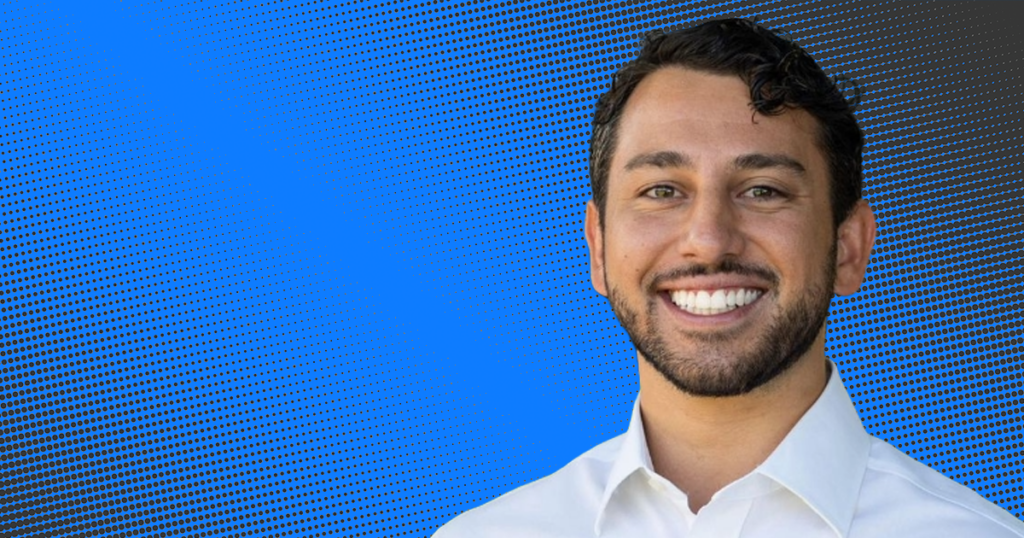
Current college sports role: Ayden Syal is the CEO and co-founder of MOGL, a leading athlete marketplace and NIL operations software provider
“I don’t feel that there is a one-size-fits-all approach to employment that is suitable for athletes given the differences in experience for athletes and the services provided to them. That being said, we do feel that as the gig economy workers – which NIL influencers are participants in – they should be able to get benefits in some form. I agree with Twitch CEO Emmett Shear that there needs to be a third category of works for the creator economy, perhaps deemed ‘dependent workers’ that could help to solve many of the issues that debaters face when identifying whether athletes are employees.”
Mit Winter
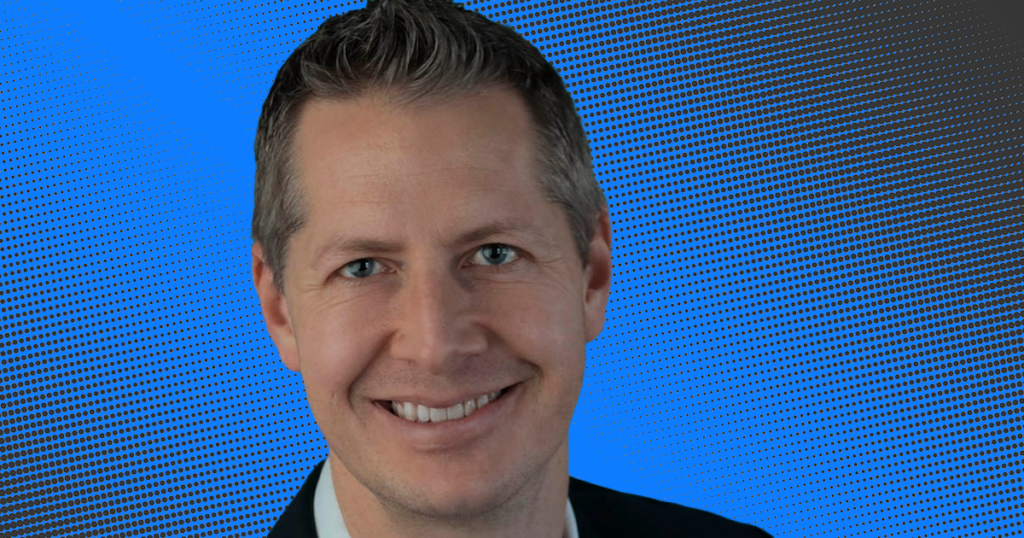
College sports role: Mit Winter is an NIL expert and college sports attorney at Kennyhertz Perry
“The answer to this question depends on whose perspective you’re considering. If you’re a college sports fan, I think an employment model will have little to no effect on college sports from your perspective. The games will go on, and as a fan, you’ll still watch and cheer for your favorite teams. Despite the narrative from some parts of the college athletics world, most college sports fans don’t care if the athletes are paid for their athletic services.
“If you’re an athlete who becomes an employee of a conference or a new private entity that operates your team, you’ll see some differences. Most notably, you’ll be able to be paid a market-based wage for your athletic performance. And you’ll be able to directly access the massive revenue stream being generated through your efforts. It won’t only be coaches and administrators building generational wealth from your efforts. You’ll have the ability to do that as well. You’ll also have more workplace protections than you do now since employment laws will now apply to you. And, importantly, you’ll be able to collectively bargain on the terms of your employment as a college athlete.
“If you’re an athlete who doesn’t become an employee, depending on the model you might see less spending on your sport or team unless alternative funding sources are found. But I think those sources of funding will be found.
“From an administrative standpoint, there will be differences. Depending on the model, some athletes may no longer be part of your athletics department. They could be employees of conferences or private entities and managed by one of those organizations. And, again depending on the model, there could be more revenue going to certain athletes. This means athletic departments may have to reduce spending on things such as salaries and facilities.
“From a big-picture perspective, since collective bargaining would be allowed, it would allow for more certainty and stability for college athletics as a whole. Rules on things like athlete compensation and player movement would be negotiated between players’ unions and governing entities. As a result, they’d be immune from antitrust law. All of the antitrust litigation that college athletics has been subject to over the past 20 years relating to athlete compensation would come to an end. It seems unthinkable to a lot of people right now. But I think many in the college athletics world would come to prefer it over how the system currently works.”
Tom Wistrcill
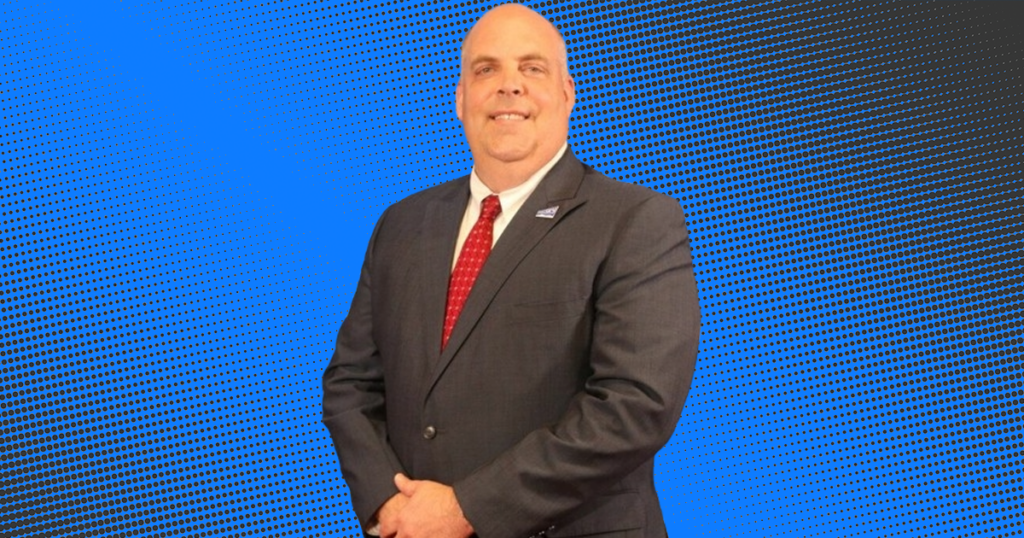
Current college sports role: Tom Wistrcill is the Big Sky Conference commissioner
“If student-athletes are handled like current university employees, it would be devastating. The coaches would be hiring and firing them, plus the tax implications and union issues would be catastrophic. Now, if we can work with the NLRB and Congress to create some type of ‘hybrid’ employee model that does not exist right now, maybe we could come up with something that works. Someone much smarter than me will have to come up with that!”
On3’s Jeremy Crabtree, Pete Nakos and Eric Prisbell contributed to this report.